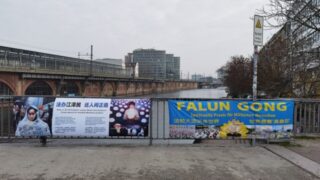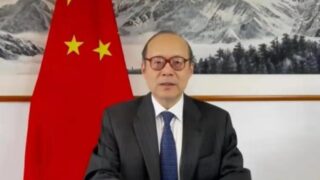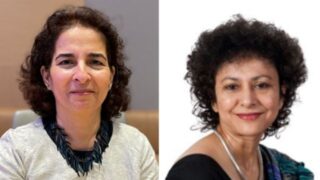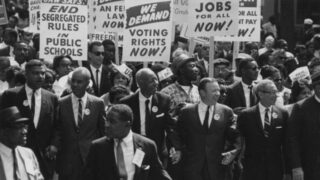The UNHRC’s 19 negative and 11 neutral votes reflect global problems. The Uyghurs were not surprised, and their fight will continue.
by Kok Bayraq


Reports of the Uyghur Genocide, including statements in China’s own media and documents, have unquestionably proven its existence. Therefore, the 19-17 vote against holding a debate about China’s human rights abuses and crimes against humanity in East Turkestan (Ch. Xinjiang) at the UN Human Rights Council (UNHRC) did not tell us much about the Uyghur Genocide. But it did tell us something about the world’s situation, including global injustices.
Let us begin by examining the 19 votes that sided with China.
Cuba, Bolivia, and other countries’ votes were nothing more than a cover-up of human rights violations in their own countries. By preventing a discussion about the Uyghur situation, they hope that China and others will stop discussions about their own human rights abuses in the future.
According to the Atajurt Kazakh Human Rights Organization in Kazakhstan, tens of thousands of Kazakhs are detained in camps in East Turkestan (Ch. Xinjiang). They are also targets of the Uyghur genocide because of their blood and cultural brotherhood with the Uyghurs. If Kazakhstan cannot support its own Kazakhs, it will not support the Uyghurs either.
Additionally, there are no people closer to the Uzbeks in terms of blood and cultural brotherhood than the Uyghurs. Uyghurs and Uzbeks can speak to one another without an interpreter. Humanity begins with caring for one’s neighbors. Therefore, the votes of Kazakhstan and Uzbekistan indicate that Central Asia has not become independent, and their dependence on Russia and China continues. These two votes also show that Central Asian countries are relying more on China due to the difficult situation in Russia today, and the geographical distance from the United States and the West.
The voices of Pakistan and Nepal are a clear example of seeking food for their hungry people from China’s Belt and Road Initiative. This quest for food is not only pathetic but also disgusting, because the food comes from Uyghur blood drawn by China’s hand.
Votes from Qatar and the United Arab Emirates are also unrelated to the Uyghurs. These are a shameless display of egotistical Arab kings and princes who are greedy for more money and power, and believe they can achieve their aims by siding with China.
What understanding of the Uyghurs may have Cameroon, Eritrea, Gabon, and other countries that cannot feed their own people and are violating their rights?
The U.N.’s human rights body should not be “used for purposes of political rivalry,” Indonesia said last week after it voted against Uyghurs. Does this mean that it is OK to use it for monetary purposes? Indonesia has deported a Uyghur refugee, Ahmet Bozoghlan, to China just three months before the vote. And this wasn’t the first time they did it.
As the Muslim country with the largest population in the world, in the choice between money and faith, Indonesia clearly chose money.
Conversely, African, Middle Eastern, and Latin American voices showed conscious or unconscious expressions of resentment toward European and American colonialism in the past.
Notably, the 19 votes against the resolution are more proof that the United States has begun to hand over its role on the international stage to China. This is not due to a lack of power but rather because of naiveté and a foolish strategy to try to change China by embracing it.
Some of the 11 abstainers included India, Malaysia, and Brazil.
There may be no middle ground when dealing with murder and genocide in the world. Impartiality cannot mean positioning ourselves in the middle between the murderer and the victim. Isn’t neutrality the same as taking the side of the murderer?
Thus, the 11 abstaining countries made the voiceless statement that they knew about the Uyghur genocide, but they were unable or unwilling to stand against China. Recognizing that such neutrality was what led China to victory, Ukraine renounced its neutrality the next day and tried to vote against Beijing, but it was too late.
China’s courage to commit genocide against the Uyghurs stems not only from its state power but also from its beliefs that the majority of the world’s population is in poverty, and dictators are in a key position in our world. China believed that it had numerical superiority over the United States in getting countries to take its side. It calculated correctly.


However, the Uyghurs did not miscalculate either.
Among the Uyghurs, the residents of Kashgar, who are known for their humor, called the United Nations the “Dirtified Nations,” as a way to ridicule any expectation of justice from the UNHRC. The result of the vote neither surprised nor disappointed the Uyghurs.
The Uyghurs, who have been fighting for their national existence and independence for 70 years and have had millions imprisoned for 6 years, are not giving up. The source of their hope and strength is God first, then humanity.
The 17 votes cast in support of the draft are a declaration that when people are freed from economic needs and establish a just political system, they can protect themselves and not only live humanely themselves, but also have the power and responsibility to protect and encourage other human beings to live humanely. The 17 voices declared that humanity exists, and that the reign of justice will one day come. When hunger will be reduced, nations will break free from their dictators, and justice will prevail.
The voices of the 17 countries, including the US, France, and Japan, confirmed that the hopes of the Uyghurs are not baseless.
Let me repeat that the 19 votes against and 11 neutral votes regarding the Uyghur proposal had nothing to do with the Uyghur situation and are a reflection of global problems. The 17 votes in favor had nothing to do with the Uyghurs’ blood, culture, and interests—they were about human responsibility. The 19 voices exhibited evil in the world, and the 17 voices reflected the noble nature of humanity, and showed a positive sign for the future of the persecuted nations, including the Uyghurs .







